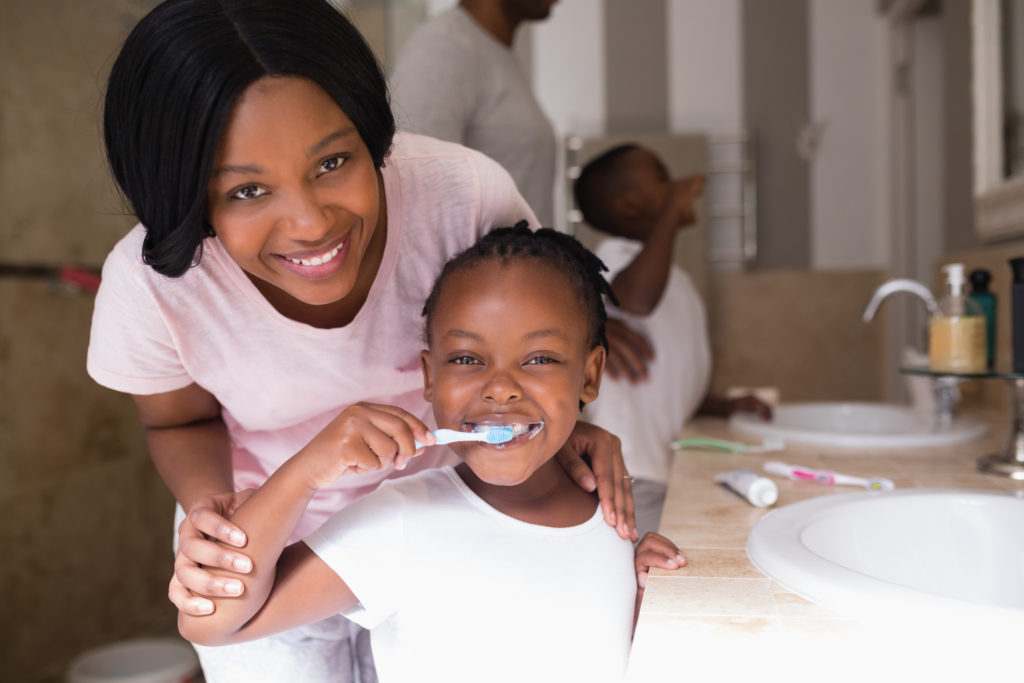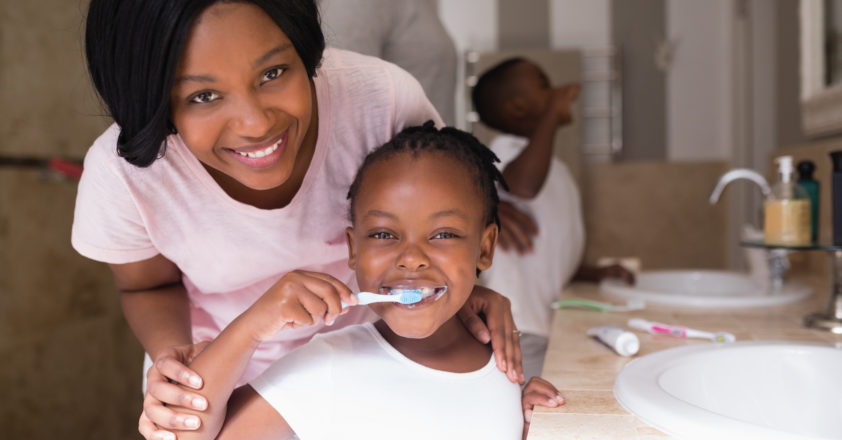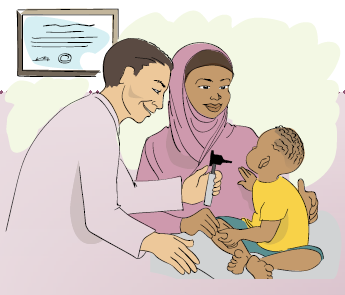Nine Tips to Ensure Children Build a Healthy Smile
 Many parents, families, teachers and providers are unaware of the importance of oral health for good overall health. Delaying or skipping dental care for your child or not helping your child practice proper oral hygiene, can increase the chance of dental disease. Although tooth decay is the most common chronic childhood disease, it is preventable.
Many parents, families, teachers and providers are unaware of the importance of oral health for good overall health. Delaying or skipping dental care for your child or not helping your child practice proper oral hygiene, can increase the chance of dental disease. Although tooth decay is the most common chronic childhood disease, it is preventable.
Baby teeth are important because they hold space for adult teeth. Children need healthy teeth to help them chew, speak and smile. Cavities can cause your child pain and serious health problems. Poor oral health can cause problems eating, speaking, learning, and socializing.
But there’s good news-you can help prevent tooth decay for your child! Here’s how:
- Begin early. Start caring for your child’s mouth soon after birth. Wipe your baby’s gums daily–after feedings and before bedtime–with a clean, wet washcloth. This will get your baby used to having their mouth cleaned.
- No bottle or sippy cup in bed. Don’t put your baby down with a bottle or sippy cup at naptime or at night. If you must give your baby a bottle or sippy cup, make sure it’s filled with tap water.
- Give milk or tap water. Avoid sugary drinks such as soda, juice or punch. Instead, give your child milk or tap water.
- Don’t share food, spoons, or forks. To avoid spreading germs that can cause cavities, don’t put food or utensils in your child’s mouth if they have first been in your mouth.
- First visit by first birthday. Take your child to the dentist by their first birthday. The dentist will identify any dental problems and will talk to you about how to prevent cavities. This is also a great time to ask questions about any other concerns you may have. Early dental visits get your child familiar and comfortable with going to the dentist.
- Brush two times a day for two minutes. Children should brush their teeth two times a day for about two minutes each time with toothpaste that contains fluoride. Parents should help their child brush until they are at least 7-8 years old.
- Floss daily to clean between the teeth. Parents should floss their child’s teeth until their child is at least 7-8 years old.
- Visit the dentist. Children should visit the dentist twice a year for a routine cleaning and dental examination. However, your dentist may want to see you or your child more or less often. It is best to follow their guidance.
- Eat healthy foods. Limit sugar and eliminate sugary drinks such as soda, juice, and punch. Drink tap water or milk instead.. Read nutrition labels so you can make food choices that are low in sugar. Eat well-balanced meals consisting of fresh foods such as fruits and vegetables, salads, dairy and lean meats and fish unless you have dietary restrictions. Treats like candy, cake, cookies, and ice cream should be given only as occasional treats!
For easy-to-understand guidance you can use to establish good oral hygiene routines, make dental visits more comfortable for your child, and to improve your child’s oral health, please visit Healthy Teeth, Healthy Kids.
A healthy mouth is important for babies and young children. Regular dental visits and proper oral hygiene can keep your child’s mouth cavity free for life. Maryland’s Medicaid dental program, Maryland Healthy Smiles, provides free dental care for children from birth to 20 years old, and for mothers during pregnancy.




